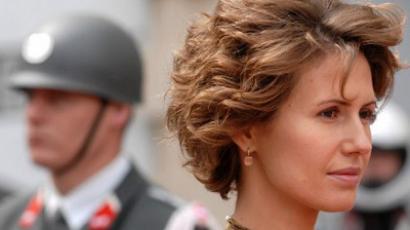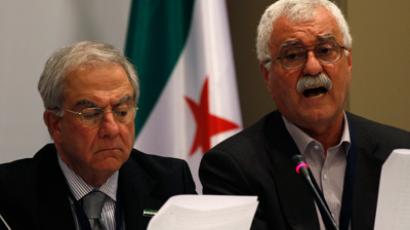Damascus: Syrian troops start withdrawal
Syrian troops have begun withdrawing from some cities and returning to their bases, Damascus says. This comes as a part of the UN-Arab League plan to stop the bloodshed in the country and get the government and opposition to the negotiation table.
The government’s forces have only retreated from the calmer cities, reports the Associated Press quoting a government official, while hotspots have only seen redeployment as soldiers took positions on the outskirts. The news comes several days after Syrian President Bashar Al-Assad accepted a peace plan requiring forces loyal to him to cease fire and withdraw from cities by April 10. If this is implemented, rebel fighters will have 48 hours to halt military operations. The aim is to bring all hostilities to an end by April 12.The plan, brought to Syria by UN and Arab League envoy Kofi Annan, also calls for an immediate daily two-hour halt to fighting so that aid groups can reach suffering civilians.It remains unclear whether the Free Syrian Army, one of the major opposition groups battling Assad’s forces in Syria, will abide by the ceasefire.Russia's Foreign Ministry said on Tuesday that Syria had informed them that it has started implementing the peace plan.A draft statement endorsing Annan’s road map and the April 10 ceasefire deadline was circulated among Western nations on Tuesday. The UN Security Council is set to discuss the plan over the next two days. The statement could be approved by Wednesday night, said French UN Ambassador, Gerard Araud.Despite Assad appearing to yield to the mediating effort, UN diplomats were unhappy on Tuesday that no public comment on the ceasefire deadline has yet followed from the troubled country."Let me say that from the US point of view and, I think, the point of view of many member states, what we have seen since April 1 is not encouraging," US Ambassador Susan Rice told reporters, referring to the stream of reports by Syrian opposition activists claiming the crackdown is continuing. France, disturbed by the claims, is set to prepare another round of sanctions for the leadership of the Arab country. Paris wants sanctions implemented in the next two weeks – ahead of the next "Friends of Syria" meeting due to be held in Paris, the French Foreign Ministry said on Tuesday.At the same time, Turkey has accused the UN Security Council of indirectly supporting the "oppression" of the Syrian people by its lack of unity."In not taking a decision, the UNSC has indirectly supported the oppression. To stand by with your hands and arms tied while the Syrian people are dying every day is to support the oppression," Erdogan told members of his party.The first peaceful protests against the ruling regime hit Syria in March 2011and grew into a military stand-off between the regular army and rebels. The UN estimates that over 9,000 people have been killed in the conflict.
Maher Salloum, from the Universal Peace Federation, is skeptical about the decision to fund the rebels just days away from a potential ceasefire.“Sending millions of dollars to the Syrian rebels will help them a lot in military logistics, military equipment, artillery and this will not act as a support to the UN (peace) plan,” Salloum points out.“Regional powers, such as Turkey, Saudi Arabia and Qatar – they want to see no stop to this civil war to put pressure on President Bashar Assad in order to make him leave the country and let them have a new president loyal to Saudis, Qataris and the west,” Salloum told RT.













